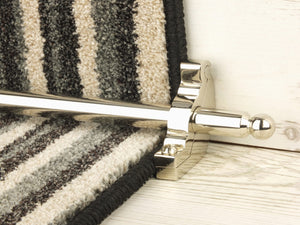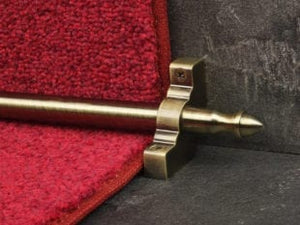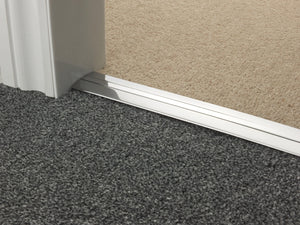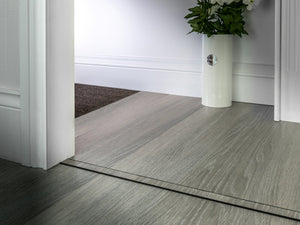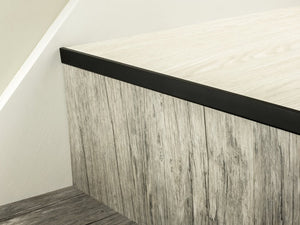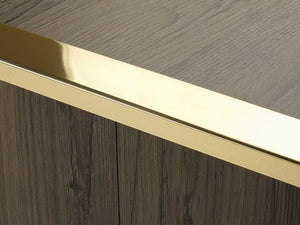
PLEASE NOTE: Please send through the template before placing your order.
Bullnose steps add elegance to a staircase, but their curved edges present a challenge when fitting stair rods. While bendable stair nosing solutions like the Bendy Bull exist, you can also bend a traditional stair rod to match the curve of your step.
Step 1: Draw and Submit the Template
- Place a large sheet of paper or cardboard over the bullnose step.
- Carefully trace the exact curve of the step.
- Mark the desired position of the stair rod.
- Submit this template to a specialist manufacturer or use it as a guide for manual bending.
Step 2: Choose the Right Stair Rod
Select a solid brass or flexible metal stair rod that can withstand bending without breaking. Avoid rods that are too rigid, as they may snap under pressure.
Step 3: Measure and Cut
- Measure the width of the bullnose step.
- Cut the stair rod to the required length using a hacksaw or appropriate cutting tool.
- Ensure the rod extends slightly beyond the edges for a polished look.
Step 4: Bend the Stair Rod
- Use a pipe bender or a soft mallet to gradually shape the rod.
- Apply even pressure along the length to avoid kinks.
- If needed, heat the rod slightly to make bending easier (only for certain metals like brass).
- Follow the template to ensure the correct curvature.
Step 5: Secure the Rod
- Position the rod along the curved edge.
- Use brackets or clips to hold it in place.
- Ensure it sits flush against the step for a smooth finish.
Step 6: Finishing Touches
- Check for alignment and adjust if necessary.
- Polish the rod to enhance its appearance.
- Secure any loose ends with adhesive or screws.
Final Thoughts
Bending a stair rod for a bullnose step is a practical alternative to using specialised nosing. By drawing and submitting a template, you ensure a precise fit while maintaining the aesthetic appeal of your staircase. Whether you’re working on a home renovation or a commercial installation, this method guarantees durability and style.

